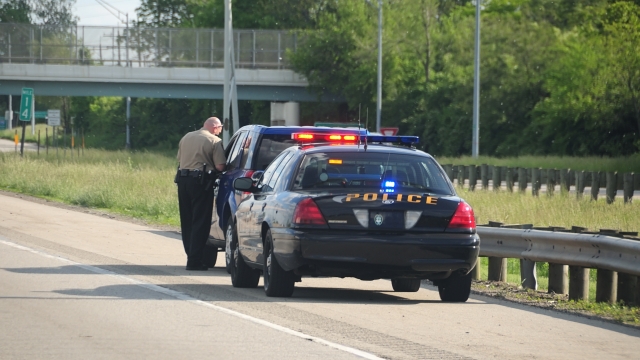Many controversial police shootings or violence begin as routine traffic stops: Philando Castile, Patrick Lyoya, George Floyd and others. But a new study says the first few words from an officer to a motorist can help predict whether a stop will escalate.
Eugenia Rho, an assistant professor in the Department of Computer Science at Virginia Tech, found if the first 45 words from an officer to a Black motorist are commands rather than a greeting or an explanation for the stop, it is much more likely the stop will escalate to handcuffing, vehicle search or an arrest.
"In these escalated stops, the officers gives an order, a command, right: 'Put your hands up, get out of the car,' but no reason explaining why the driver was stopped," Rho said.
The study examined police body-camera footage of 577 traffic stops and found 81 of them resulted in searches, handcuffing or arrests.
"We found no instances where the driver refused to comply with an officer's command or answer an officer's question," Rho said. "The majority of the drivers responses are answers or explanations to the officers orders, questions. And there are no instances where the driver is not complying with the officer in every single one of the escalated stops that we examine."
Sgt. Cheryl Dorsey is a 20-year veteran of the Los Angeles Police Department and says the officer's behavior has an immense impact on the outcome of a stop.
SEE MORE: What do you do if a law enforcement impersonator pulls you over?
"The onus is always on the police officer, the trained professional," Dorsey said. "Something as simple as an explanation can avoid all sorts of other problems because at the end of the day, the goal is for everyone to go home safely, the police officer as well as the citizen. And then, when an officer just starts barking out orders, well, now you run the risk of having now the citizen become elevated in their response."
In some jurisdictions across the country, city leaders and police departments are cutting out minor traffic stops completely. Philadelphia, Los Angeles, Pittsburgh and several other cities are experimenting with banning minor traffic stops, arguing they overwhelmingly impact Black motorists, aren't especially helpful in stopping crime and can have fatal consequences.
Sgt. Dorsey says while she agrees Black people are often mistreated by police, she does not believe this is the answer.
"That sounds sexy, until you have a civilian who pulls over somebody with an expired tag who happens to be a serial killer or somebody who's wanted for robbing a bank," Dorsey said. "Now you have a civilian dealing with this armed and dangerous individual because, again, traffic stops are the most dangerous interactions a police officer can have."
The study also documented bias in who was pulled over and what the outcome was for those stops.
"97.8% of the drivers, who experienced one of the three escalated outcomes were Black, which is why we limit our study to Black drivers," Rho said.
Rho said while she wanted to include white motorists in this study, she couldn't because it happened so infrequently in comparison to Black drivers.
Trending stories at Scrippsnews.com




